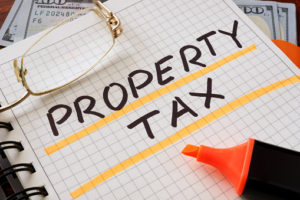If you own income-producing commercial property in New Jersey, you may have recently received a
rental income and expense request by certified mail from the tax assessor for rental income and expense information.
Print Full Article with Citation Links>>>
 Owners must respond to Chapter 91 requests within 45 days of the date of the rental income and expense letter or lose their rights to appeal their tax assessment for the applicable year to either the County Tax Board or New Jersey Tax Court, subject only to a “reasonableness hearing.” Ocean Pines Ltd. v. Point Pleasant Bor., 112 N.J. 1 (1988). (In a reasonableness hearing, the inquiry will focus solely on whether the valuation could reasonably have been arrived at in light of the data available to the assessor at the time of the valuation.) New Jersey courts have strictly applied the harsh remedy of dismissing an appeal when a Chapter 91 request was not returned. You must complete the entire form accurately. If a form is incomplete or misleading, the tax appeal may still be dismissed for an inadequate response. In order to preserve your rights to appeal, you should respond by certified mail, so you can prove you responded.
Owners must respond to Chapter 91 requests within 45 days of the date of the rental income and expense letter or lose their rights to appeal their tax assessment for the applicable year to either the County Tax Board or New Jersey Tax Court, subject only to a “reasonableness hearing.” Ocean Pines Ltd. v. Point Pleasant Bor., 112 N.J. 1 (1988). (In a reasonableness hearing, the inquiry will focus solely on whether the valuation could reasonably have been arrived at in light of the data available to the assessor at the time of the valuation.) New Jersey courts have strictly applied the harsh remedy of dismissing an appeal when a Chapter 91 request was not returned. You must complete the entire form accurately. If a form is incomplete or misleading, the tax appeal may still be dismissed for an inadequate response. In order to preserve your rights to appeal, you should respond by certified mail, so you can prove you responded.
Even if your property is not income-producing, you should respond to the rental income and expense request in writing within the 45 day window and let the tax assessor know the reasons for the non-response. Properties leased to related entities, affiliates or wholly owned subsidiaries may be considered income-producing, even if the underlying leases are not arm’s length and do not reflect market rents. SKG Realty Corp. v. Wall Tp., 8 NJ Tax 209 (1985). Transactions among related companies are not privileged, and the assessor may decide whether to consider the information furnished. Id. Similarly, properties subject to leases whereby the owner receives compensation from a franchisee tenant based on a percentage of gross profit are considered income-producing, even though such compensation may not be classified as “rent.” Southland Corp. v. Dover Tp., 21 NJ Tax 573 (2004). Nursing homes and hotels are considered income-producing properties, even though they do not collect rent. Rolling Hills of Hunterdon LP v. Clinton Tp., 15 NJ Tax 364 (1995). In these cases, the complaints were dismissed for failure to respond in a timely manner.
Tenants who pay real estate taxes directly to the tax authority or indirectly through expense passthroughs in net leases should be careful that they do not lose their appeal rights because their landlord does not respond to Chapter 91 requests. Similarly, a contract purchaser should confirm, during the due diligence process, that its seller responded to a Chapter 91 request, so that the purchaser does not inadvertently lose its appeal rights. Purchasers should also consider including a seller covenant in the purchase agreement that it will timely respond to any Chapter 91 request.
Dismissal of an appeal can be especially punitive where the taxpayer is the subject of a municipal-wide
revaluation and the assessment has increased significantly. In that case, you may receive a much higher
tax bill without recourse to challenge it.
The contents of this article are for informational purposes only and none of these materials is offered, nor should be construed, as legal advice or a legal opinion based on any specific facts or circumstances.



